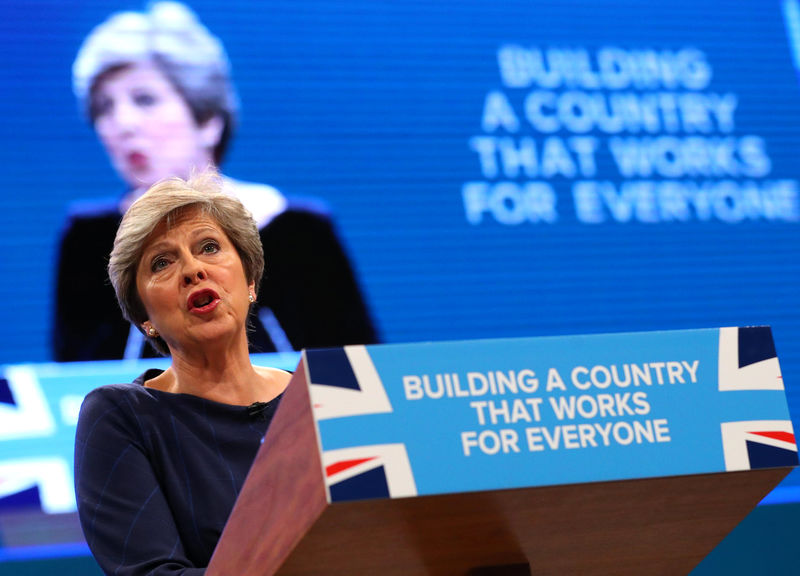LONDON (Reuters) - Prime Minister Theresa May, weakened by a disastrous party conference, will give British lawmakers a bullish prognosis for negotiations over exit from the European Union on Monday, but tell them that it is up to Brussels to make the next move.
May has seen her authority erode since calling and then bungling an election in June, which cost her Conservatives their majority in parliament.
At her party's conference last week, her final speech was marred by a coughing fit and letters falling off the slogan on the set behind her. A former chairman of the party announced that a group of Conservative lawmakers was trying to topple her.
Meanwhile, she has so far failed to persuade Brussels to start talks on Britain's future relationship with the EU, six months after setting a two-year clock ticking on Britain's exit from the bloc.
May will tell lawmakers on Monday that she was offering Europe a "new, deep and special partnership" with Britain, her office said.
The next move would have to be taken by the other EU member states, but she expects them to accept her offer: "The ball is in their court. But I am optimistic we will receive a positive response."
Britain had aimed to start talks on its future ties with the European Union after a summit in Brussels later this month. But the head of the European Commission said last month that a "miracle" was needed in order to make sufficient progress to push the talks beyond the initial terms of the divorce.
Brussels says it will not discuss its future relationship with Britain until London agrees to pay its outstanding dues, resolves the fate of EU citizens living in Britain and works out a plan for the future UK-EU land border in Ireland.
May aimed to push the talks forward with a speech last month in which she asked for a transition period of about two years, which would see Britain remain inside the EU customs union and single market until its future arrangements could be worked out.
But days before her speech, her Foreign Secretary Boris Johnson wrote a long newspaper article setting out his own plans for Brexit, which many of May's allies saw as a move to undermine her authority within the party.

Chief EU negotiator Michel Barnier said 10 days ago that a "new dynamic" had been created by her speech, but there was still not enough progress to move to the next phase of talks on a transitional period or a future trade deal.